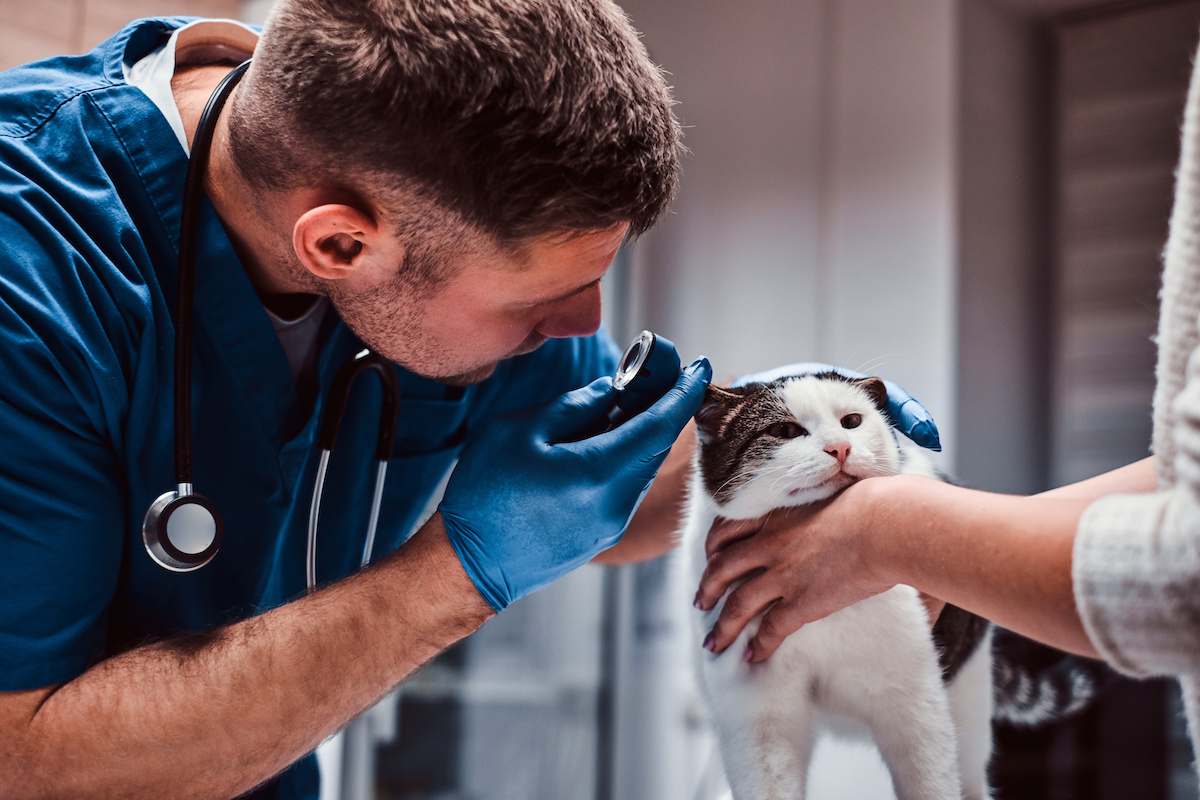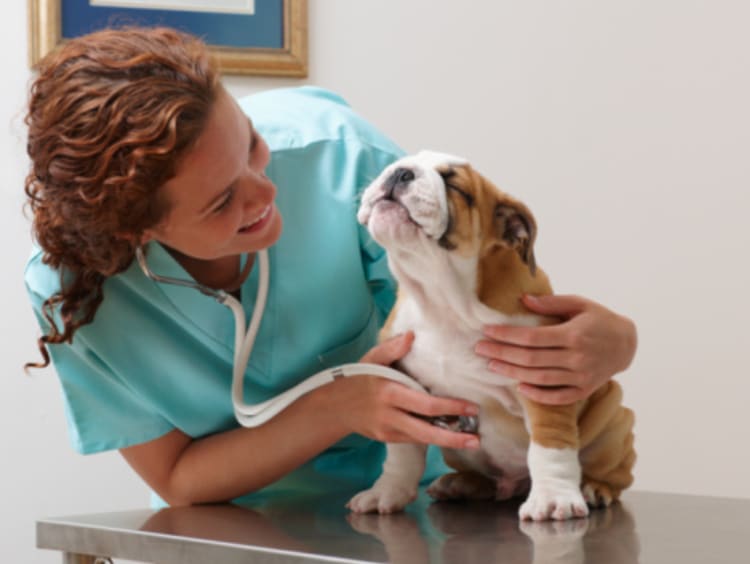Inoculation Guidelines From Your Trusted Vet
Vaccination standards supplied by your trusted vet play a critical function in guarding your family pet's health and health. Additionally, resolving typical misconceptions bordering vaccines can additionally boost family pet proprietors' confidence in these preventative steps.

Relevance of Inoculations
Vaccinations play an essential function in safeguarding family pets versus a series of avoidable illness. By boosting the body immune system to identify and combat certain pathogens, vaccinations dramatically lower the occurrence of transmittable illness that can affect a pet's health and long life. Not just do inoculations shield private pets, yet they likewise contribute to herd immunity, thus decreasing the general frequency of illness in the family pet population.
Timely inoculations assist to mitigate the spread of conditions such as rabies, parvovirus, and distemper, which can have serious repercussions for both human beings and family pets. Moreover, vaccinations are typically a need for boarding facilities, brushing services, and pet dog parks, making them important for those who want to mingle their pets.

Core Vaccinations for Pets
While the specific vaccination needs of pets can differ based upon specific aspects, core injections are generally recommended to protect against one of the most severe and common conditions (Vet Enterprise). Core vaccines are those deemed necessary for all pets, regardless of their way of living or geographical place, as they safeguard versus possibly fatal and very transmittable diseases
For dogs, the core injections include those for canine distemper, parvovirus, adenovirus (liver disease), and rabies. Adenovirus can result in liver disease, while rabies is a zoonotic condition that poses a risk to both pets and people.
In cats, core vaccinations include feline panleukopenia, feline calicivirus, feline herpesvirus (rhinotracheitis), and rabies. Feline panleukopenia is a highly infectious viral disease that affects the body immune system and intestines. Calicivirus and herpesvirus are significant factors to top breathing infections in felines, while rabies continues to be a vital issue for public health.
Seek advice from your vet to ensure your family pets obtain their core vaccinations on time.
Non-Core Vaccines Explained
Non-core vaccines are customized to deal with details risks connected with a pet's direct exposure, setting, and way of living to particular diseases. Unlike core vaccines, which are globally suggested for all family pets, non-core vaccinations are considered based on specific circumstances. These vaccines are particularly crucial for pets that might experience distinct virus because of their geographical place, travel practices, or activities.
Examples of non-core vaccinations include those for Bordetella bronchiseptica, which is connected to kennel coughing, and Lyme disease, triggered by ticks. Pets that regularly connect with various other animals, such as those in boarding facilities, canine parks, or grooming settings, may profit from Bordetella vaccination. If you live in a location where Lyme disease is common, immunizing versus this disease can be a prudent option for outdoor-loving canines.
Other non-core vaccinations might include those for leptospirosis, canine flu, and feline leukemia, depending on Full Article the details danger variables present. It is important to have a comprehensive discussion with your veterinarian concerning your animal's way of living and the potential click over here need for these vaccines, making sure a tailored inoculation technique that best safeguards your hairy good friend.
Inoculation Schedule Introduction

As animals mature, it is necessary to abide by the advised booster inoculations. Emergency Vet. For grown-up animals, core vaccinations are typically provided every one to 3 years, depending upon the particular vaccination and local laws. Non-core vaccines might be recommended based upon way of living factors and regional disease prevalence, requiring a customized method
Normal vet check-ups are critical for upgrading inoculation timetables. Your veterinarian can offer support on one of the most proper booster shots for your pet, factoring in age, health condition, and ecological risks. By remaining positive and notified, pet dog proprietors can guarantee their furry buddies get prompt and efficient inoculations, consequently securing their health and wellness throughout their lives.
Usual Myths About Vaccines
Misunderstandings about pet inoculations can lead to complication and unwillingness among animal proprietors relating to the immunization process. One widespread myth is that injections are unnecessary for interior family pets. While it holds true that indoor pet dogs encounter reduced dangers, they are not entirely unsusceptible to diseases, as virus can be introduced through numerous means, consisting of human garments and various other family pets.
An additional misunderstanding is that injections can cause the diseases they intend to prevent. In fact, the majority of vaccines include suspended or attenuated virus, which can not cause illness in healthy pets. Some pet dog owners likewise believe that their pets should not be vaccinated if they are already healthy and balanced; however, vaccinations are a proactive step that aids stop the onset of ailment.
Additionally, lots of pet dog owners are afraid that vaccinations will certainly bring about lasting health complications. While side results can occur, they are usually light and short-term. The advantages of inoculation-- safeguarding pet dogs from potentially dangerous illness-- much outweigh the risks. Understanding these usual myths is important for responsible pet possession and ensuring the health and safety of your furry buddies. Always consult your vet for exact info tailored to your animal's certain demands.
Verdict
In recap, adherence to inoculation guidelines is vital for guaranteeing the wellness and longevity of pets. Core injections provide vital protection versus severe diseases, while non-core vaccinations attend to specific threats based upon private way of livings. Establishing a detailed vaccination schedule, combined with routine veterinary exams, facilitates optimal health why not look here and wellness administration. Resolving common misconceptions surrounding inoculations better strengthens the importance of educated decision-making in pet dog treatment. Eventually, a positive strategy to vaccinations is vital for maintaining animal health.
Not only do inoculations secure specific animals, yet they additionally contribute to herd resistance, therefore reducing the general occurrence of illness in the pet dog populace.
Misunderstandings concerning pet inoculations can lead to complication and hesitation among pet proprietors pertaining to the booster shot process. While it's real that indoor pets face reduced threats, they are not totally immune to diseases, as pathogens can be presented with various ways, including human clothing and other pet dogs.
Some family pet proprietors additionally believe that their pet dogs must not be immunized if they are currently healthy and balanced; nevertheless, vaccinations are a proactive action that aids protect against the start of disease.
The benefits of vaccination-- shielding animals from possibly life-threatening conditions-- far surpass the threats.